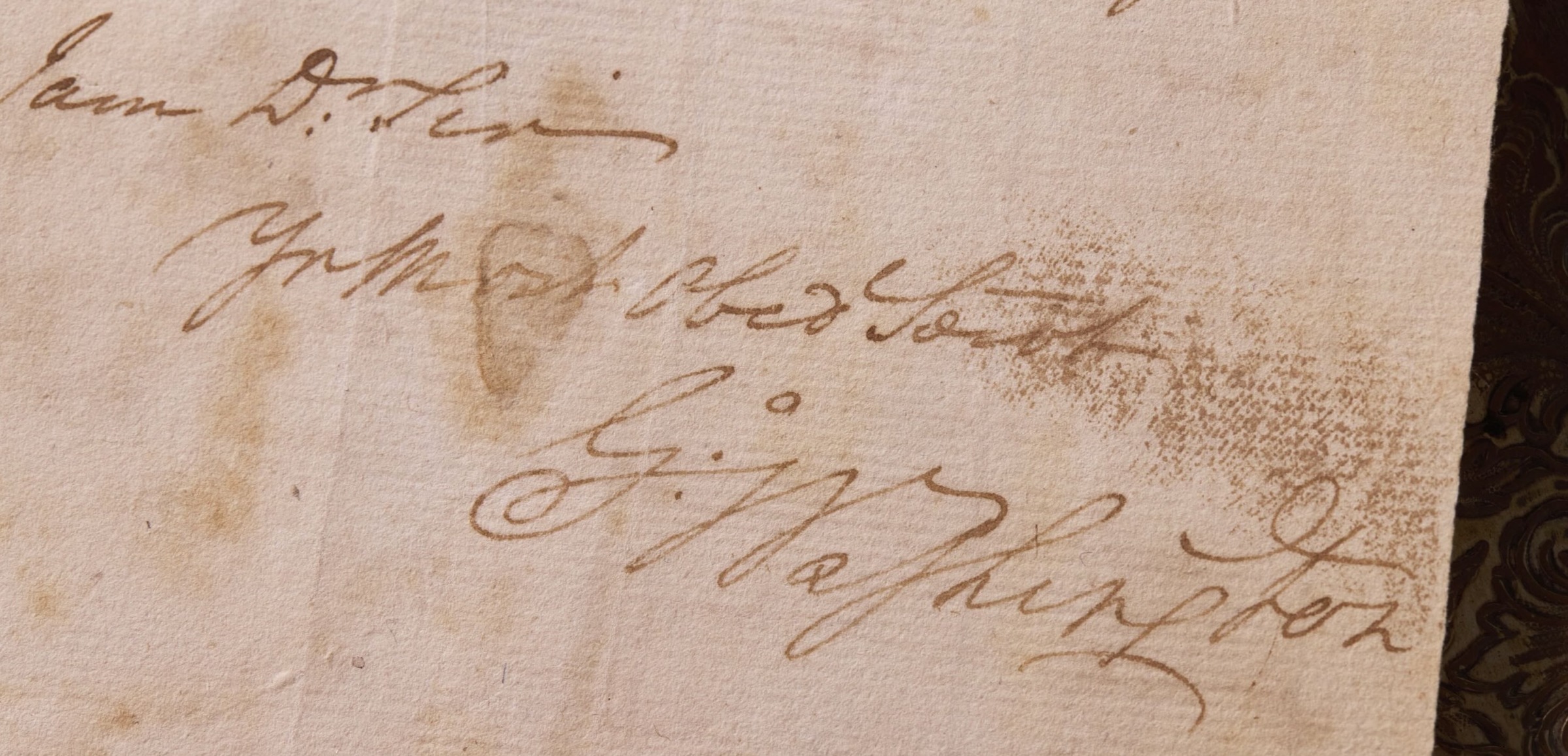For Sale on Presidents’ Day, A Letter Embodying the Spirit of the American Revolution
Washington Evokes the Power of the Colonists and Militias to Fight Off the British: “Whenever they make an impression, the Country will recur to arms”
The Raab Collection announced today that it has acquired and is offering a rare letter of George Washington that goes to the heart of the American Revolution and the spirit of the colonists to take up their own arms to fight off the oppressors. In this 1777 letter, General Washington predicts that every time the British attack, the “country will recur to arms.” The British may have won a skirmish, he writes, but Washington saw in this defeat the hope of the new nation, one that was willing to defend itself in the form of citizen militias like the minutemen, who would demonstrate the spirit that would win the war — regular Americans rising up to defy tyranny. For sale on Presidents’ Day, the letter is valued at $150,000.
“This is a powerful expression of the spirit of the American uprising from the mind of its Commander in Chief and future first President, a truly remarkable find and an evocative piece of our national history,” said Nathan Raab, president of The Raab Collection and author of The Hunt for History.

General Washington in 1777
As General of the Continental Army, Washington suffered a series of setbacks in 1776. The famous Crossing of the Delaware on December 25, 1776, however, made possible Washington’s successful attack at Trenton, followed closely by another win at the Battles of Assunpink Creek and then at Princeton. These three victories allowed Washington to regain momentum in the early months of 1777 and bring hope to the American cause. He then settled his army in Morristown, New Jersey, and planned his next steps.
As mentioned in this letter, the British, under the command of Lord William Howe, had taken the war north to Connecticut, where they raided the supply depot at Danbury. Reaching the town virtually unopposed, the British burned military stores and equipment. Unaware that the local colonists–a hastily assembled, self-armed form of militia–had gathered in the surrounding towns to initiate a counterattack, the British infantry attempted to withdraw only to be met with strong resistance. A group of American militiamen under Brigadier General Benedict Arnold forced a two-hour battle until the British ultimately advanced. Howe claimed victory, yet Washington held a different view, as we see here.
On May 2, Brigadier General Samuel Holden Parsons informed General Washington about the raid, reporting, “The Loss of our Stores at Danbury is an Event very Alarming to the Country….”

The Letter
Washington recognized that the American response was more important than the loss of tents and bags of flour. From Morristown on May 7, Washington wrote that he saw in this defeat the spirit of a new nation that would take up arms against its oppressor.
Letter signed, George Washington, Morristown, May 7, 1777: “I am inclined to believe they [the British] will pursue such measures with a great degree of caution. For tho’ they afforded themselves the stores at Danbury, yet it was with considerable loss and they are convinced whenever they make an impression, the Country will recur to arms.”
Washington exudes confidence in his army and his countrymen. He provides Parsons with these marching orders: assign troops to guard the other supply depots and deploy the remainder to Peck’s Hill. In doing so, Washington’s letter also mentions the first major American inoculation campaign:
“Such as are invalids or too weak to proceed yet from Inoculation or other Causes might remain, till they recover more strength, at the places where the Stores shall be removed to: they will serve as a guard and will aid in repelling any incursion the Enemy may attempt to make for their destruction.”
To learn more about this letter, Nathan Raab is available for interviews to share his broad experience handling presidential documents. An informative podcast about the letter, Inspired by History, can be assessed here:







































































































